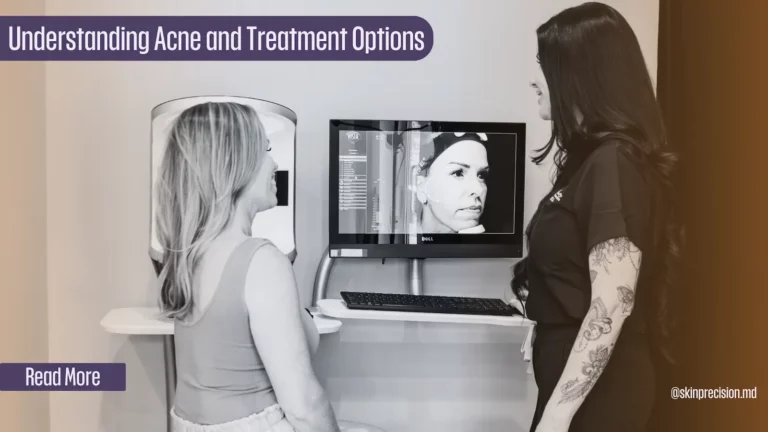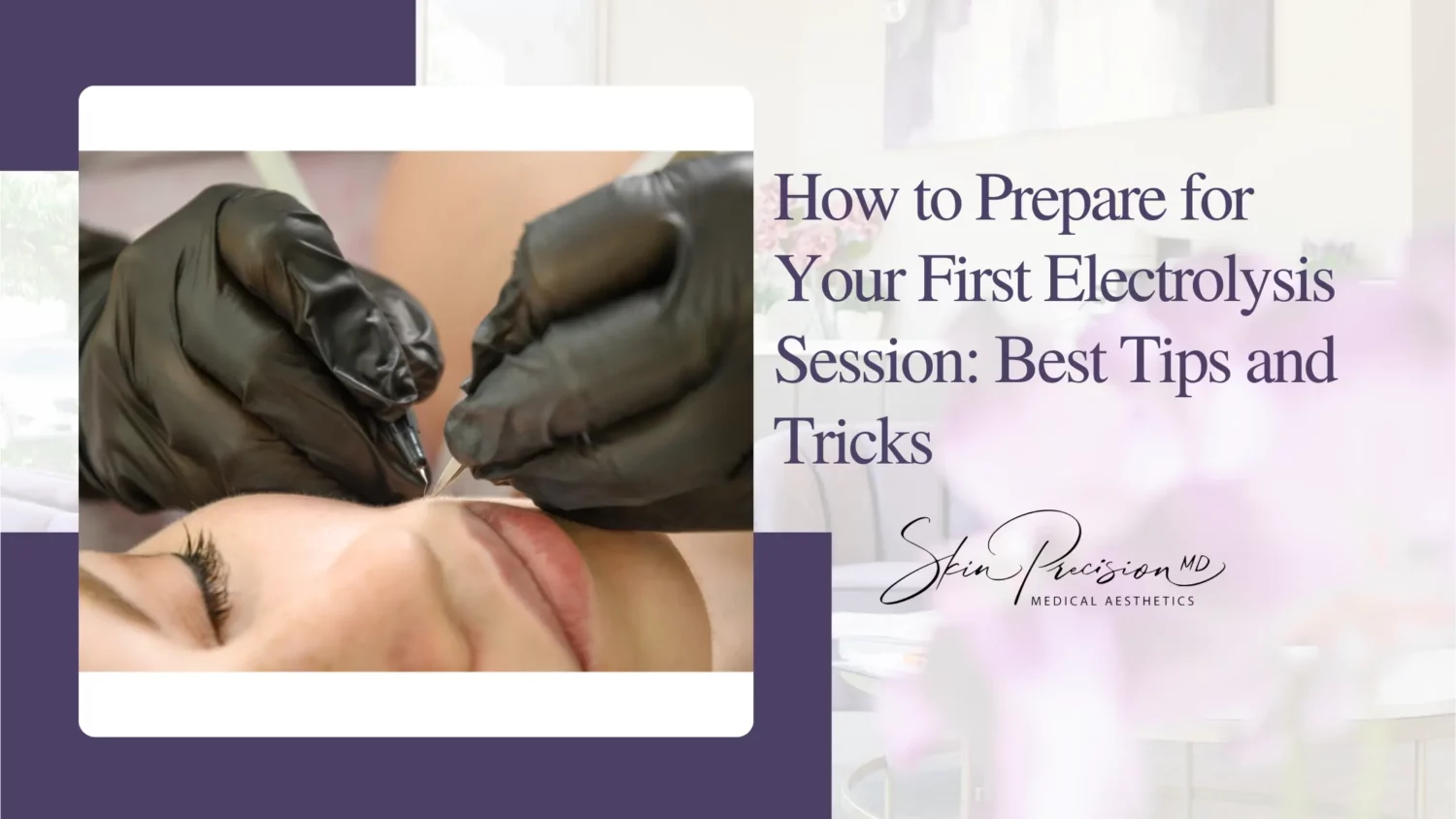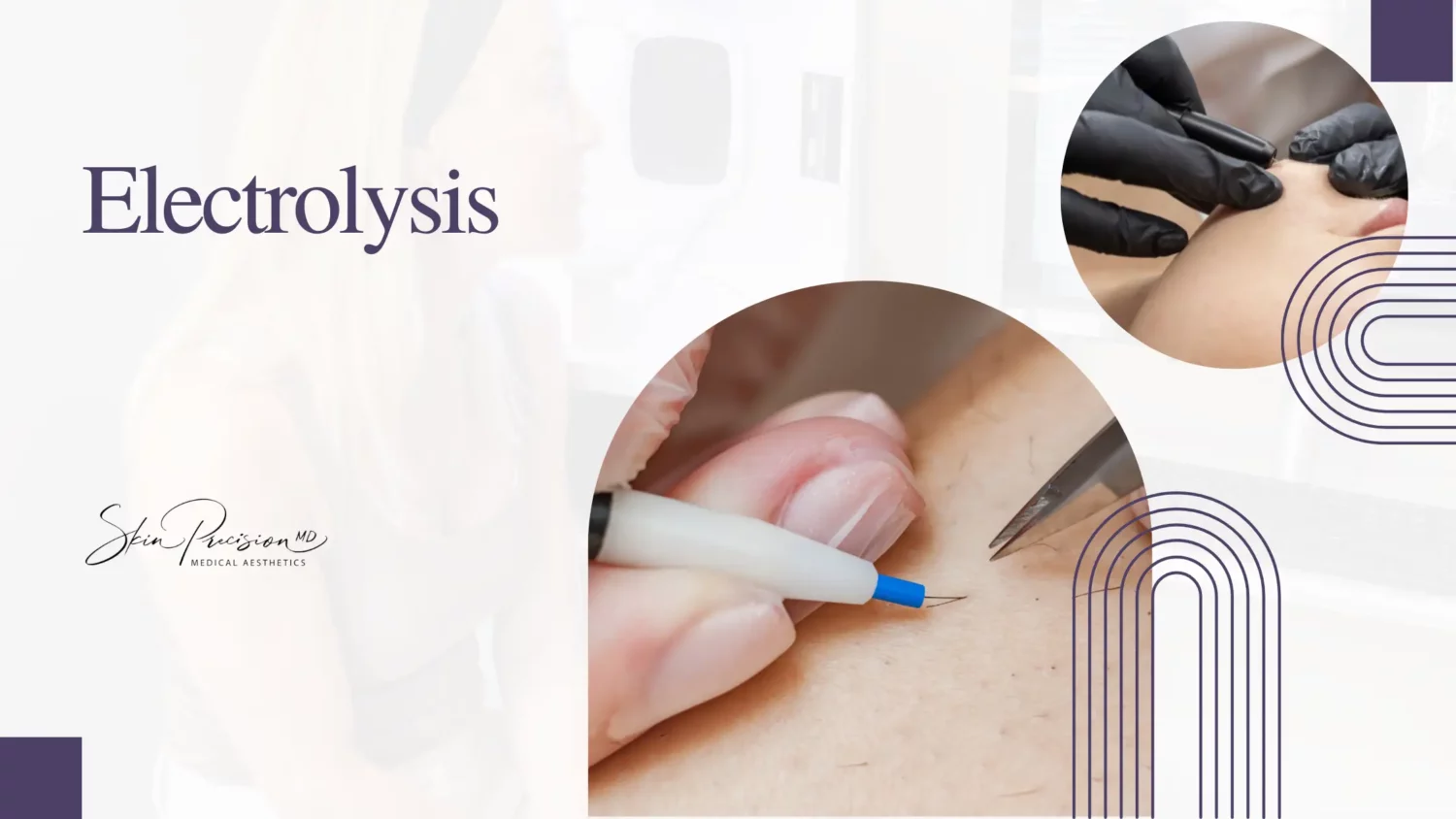Introduction
A common skin condition that can afflict anyone at any age is acne. For management to be effective, it is essential to comprehend the reasons and potential treatments. This post will discuss the many forms of acne, its underlying causes, and the range of Skin Precision MD’s treatment choices.
What is Acne?
The skin ailment known as acne arises from the accumulation of oil and dead skin cells in hair follicles. Acne can take many different forms due to this obstruction, ranging from minor outbreaks to severe cystic acne.
Types of Acne
Acne can be classified into two main types: non-inflammatory and inflammatory.
Non-Inflammatory Acne
- Whiteheads: Small, closed bumps that form when a pore is clogged.
- Blackheads: Open pores with a black exterior from a buildup of dead skin cells and oil.
Inflammatory Acne
- Papules: little red pimples that might feel sensitive to the touch.
- Pustules: Pus-filled, red, swollen lumps.
- Nodules: large sore lumps located deep under the skin.
- Cysts: severe sores packed with pus that may leave scars.
Causes of Acne
Acne can result from several factors:
Hormonal Factors
Hormonal changes during puberty can increase oil production, which can result in acne and blocked pores.
Genetic Predisposition
If your family members have had acne, you’re more likely to develop it as well.
Environmental Factors
Diet, stress, and improper skincare routines can contribute to acne breakouts.
Bacterial Infections
The bacterium P. acnes plays a significant role in the development of acne by causing inflammation.
Impact of Acne on Skin
Scars and hyperpigmentation are among the long-lasting consequences acne may have on the skin. There may also have a major psychological consequence, such as low self-esteem.
Acne Treatments at Skin Precision MD
At Skin Precision MD, we offer a variety of treatments tailored to your specific skin type and acne severity.
Topical Treatments
- Benzoyl Peroxide: Reduces acne-causing bacteria and prevents future breakouts.
- Salicylic Acid: Exfoliates the skin and unclogs pores.
- Retinoids: Promote skin cell turnover and reduce the appearance of acne scars.
Oral Medications
- Antibiotics: Help reduce inflammation and eliminate bacteria.
- Hormonal Treatments: Birth control pills and anti-androgens can balance hormone levels and reduce acne.
Professional Acne Treatments at Skin Precision MD
- Chemical Peels: Remove dead skin cells and promote new cell growth.
- Laser Therapy: Targets acne-causing bacteria and reduces scarring.
- Microneedling: Stimulates collagen production and improves skin texture.
Medical-Grade Skincare Products
To treat severe acne, over-the-counter treatments might not be sufficient. We at Skin Precision MD provide skincare products of the highest caliber, tailored to your individual skin issues.
Lifestyle and Dietary Adjustments
Diet and stress can play a role in acne development. Avoiding certain foods and managing stress levels can help prevent breakouts.
Preventing Future Breakouts
You can maintain clean, healthy skin by following a regular skincare regimen and seeing a dermatologist for checkups.
When to See a Dermatologist
It could be time to visit a dermatologist if over-the-counter remedies aren’t working. Professional assessments and personalized treatment regimens are provided by Skin Precision MD.
Success Stories at Skin Precision MD
Our clients have seen significant improvements in their skin after undergoing our acne treatments. Testimonials and before-and-after photos highlight the effectiveness of our approach.
Conclusion
Due to the complexity of acne, each patient needs a unique treatment strategy. You may attain healthier, cleaner skin by learning the causes and considering your alternatives for treatment at Skin Precision MD.
FAQs
- What are the most effective acne treatments?
- The most effective treatments depend on the type and severity of your acne. Skin Precision MD offers customized treatment plans that may include topical treatments, oral medications, and professional procedures.
- How long does it take to see results?
- Results can vary, but most patients see improvements within 4-6 weeks of consistent treatment.
- Can diet really affect acne?
- Yes, certain foods can trigger acne breakouts. A balanced diet with minimal sugar and dairy can help manage acne.
- Are there any side effects to acne treatments?
- Some treatments may cause dryness or irritation, but these effects are usually temporary and manageable with proper care.
- How often should I get professional treatments for acne?
- Depending on the severity of your acne, professional treatments may be recommended every 4-6 weeks. Your dermatologist will create a schedule tailored to your needs.





